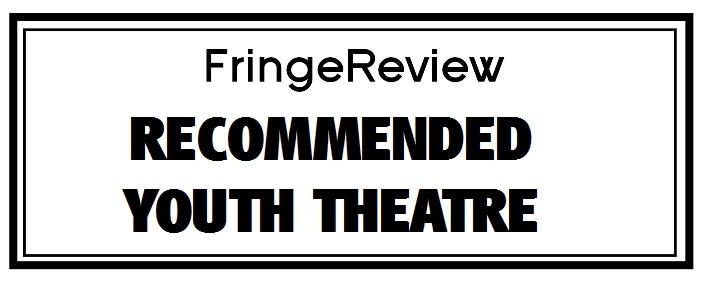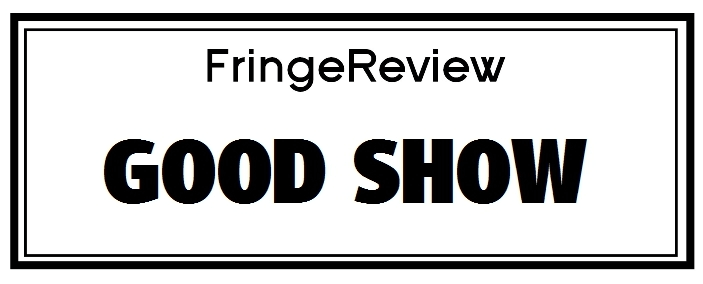Genre: Political

Review: The Constituent
This extremely fine play is even more prescient than Penhall and Warchus intended, with an earlier election. The Constituent though, will survive it till August.

Review: Kafka
It’s Klaff’s improvisatory edge, founded on absolute technique and clear-headed text, that finds an exit where none was signposted. Magnificent.

Review: Richard III
In a female-led cast led by the eponymous Richard III (Michelle Terry) it’s striking that the trio of cursing women is this production’s highlight

Review: The English Moor
Richard Brome’s 1637 The English Moor marks a new departure for Read Not Dead. You might say with this play it’s Read to be Dead.

Review: Kunstler
An outstanding production persuading us such a self-narrating show can enthral as well as inform. A hidden gem.

Review: Magpie
This really has no place in the Brighton Fringe. Perhaps the Festival. What is a slice of the darkest Sean O’Casey doing at a 9pm slot? Outstanding.

Review: Laughing Boy
Stephen Unwin directs his own play as a sweep of storytelling, laughter and devastation.

Review: Just For One Day
Despite history’s caveats, O’Farrell’s core message isn’t about white saviours or pop stars but how ordinary people unite to change things.

Review: Till the Stars Come Down
Even this early, it’s safe to predict we’ll look back at the end of 2024 and proclaim it as one of the year’s finest.

Review: The Beautiful Future is Coming
Beautiful Future engages throughout though the near future is where it beats quickest. Flora Wilson Brown’s play makes you wonder what life, not just the playwright, might do with her characters. Urgently recommended.

Review: The EU Killed My Dad
Do see this, preferably alongside its sometime co-runner The Beautiful Future is Coming. A dizzying theatrical gem.

Review: Cowbois
Cranford’s gone Wild West, via the Court and RSC. Cowbois is of course daft. But it’s magnificent in its silliness, contains wonderful – and truthful – moments. Deadly serious can have you rolling in the aisles and still jump up for the revolution.

Review: 1979
Political history told in Mamet-fast satire, imagined conversations and accurate stats. What could be more thrilling? 82 minutes later you won’t ask why this three-hander is like curing New Year’s hangover with Red Bull, ice, something illegal and a vodka chaser.

Review: Rika’s Rooms
Emma Wilkinson Wright manages the narrative as an odyssey punctuated by screams. It’s already a phenomenal performance and the actor is so wholly immersed in Rika you know you’re in the presence of something remarkable

Review: Protest Song
Tim Price’s magnificent one-man play reminds us – yells at us - how much we’re all connected, and unless we stand together, how much we lose.

Review: Cold War
Cold War ends with a draining-out of hope in Anya Chalotra and Luke Thallon; a desolate beauty the cast certainly earn.

Review: Oh What a Lovely War
Musically directed by Ellie Verkerk the six-strong cast play instruments throughout. They’re a phenomenal team, singing beautifully a capella or in solo. With six young actors mostly fresh out of drama school absolutely at the top of their first game, we’re treated to acting both hungry to prove and yet touched by the world they’ve entered. This is an outstanding production.

Review: Mates in Chelsea
Mates in Chelsea is definitely worth seeing, and apart from adaptations surely the best thing this writer’s produced in a decade. Royal Court Theatre

Review: Phantasmagoria
There seem enough potential endings to make what happens neither predictable, nor entirely obvious. A first-rate cast with enough residual fascination in the characters they create to wonder at what life, and not just Deepika Arwind, might do to them. The terror is existential and we should ask what it might do to us.

Review: The Inquiry
An absorbing, in many ways authoritative first play Refusing cynicism, trying for humanity all round, Harry Davies is already striking the right balance. His next play should be eagerly awaited.

Review: Meetings
Mustapha Matura draws in and telescopes devastating consequences - perhaps telegraphs years of damage into a few weeks for dramatic licence. That doesn’t lessen his impact. The point is western exploitation kills, in many guises.

Review: Blue Mist
A stunning debut, linguistically brilliant, very funny, freighted with critique and truthful.

Review: Blood Brothers
This reinvigorated classic has overwhelming impact: as story, as lyric fable, as terrible moral for these distracted times.
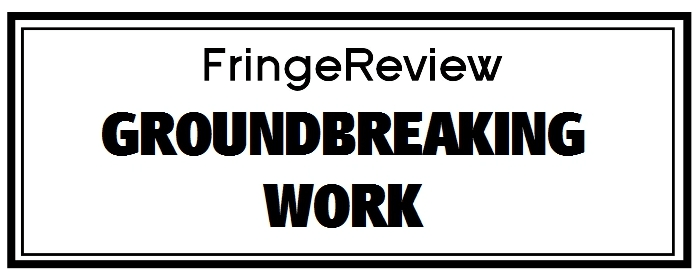
Review: Imposter 22
A joyous, riotously funny, wholly untypical experience. A play to shift boundaries and ourselves.

Review: Brief Life & Mysterious Death of Boris III, King of Bulgaria
Fringe-historical gold, which means very good indeed. It doesn’t mean Copenhagen, with Frayn’s subtle collisions and collusions. It’s a different, desperately joyous animal that signs its truth and shames the world.

Review: The Father and the Assassin
There’s no finer dramatization of India’s internal conflicts. Hiran Abeysekera’s Gandhi-killer Godse stands out in this thrilling ensemble and storms it too.

Review: Accidental Death of an Anarchist
The adage that farce is tragedy speeded up met its greatest progenitor in Dario Fo. In a ferocious new version by Tom Basden of Franca Rame’s and Fo’s Accidental Death of an Anarchist, directed by Daniel Raggett in a stunning production now at the Haymarket, the target here is squarely the London Met. And if you slowed down Basden’s brilliant, no-holds-unbludgeoned telling, details prove tragic enough.

Review: A Mirror
This is a far more ambitious work than Sam Holcroft’s Rules For Living, and grounded in things she’s wished to write for a decade. It’s ingenious, necessary and occasionally at the end needs a tweak more to land. It’s still unmissable.

Review: Makeshifts, Realities, Honour Thy Father
Finborough’s absorbing ReDiscovered season continues with a triple-bill of plays directed by Melissa Dunne that after tonight, you might never wish to imagine apart. Of course they should transfer, be far better-known, and at least they’re packed out - grab a ticket if you possibly can. We can be grateful again for Neil McPherson’s curating yet another series of early 20th century revivals.
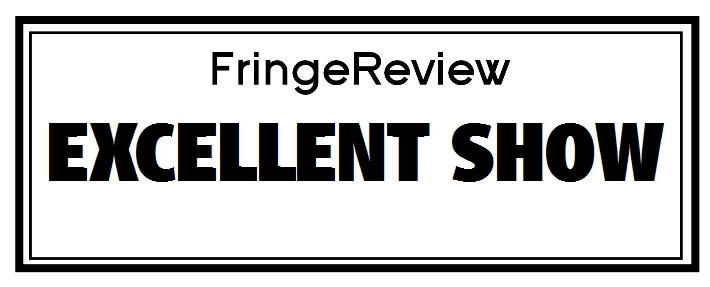
Review: Rosie Holt – That’s Politainment
Contemporary political satire that invites people to laugh less and think more.

Review: Walking Home
A decently imagined production of a serious topic that hints strongly at the work remaining to be identified, never mind done.

Review: Macbeth
The strangeness of this Macbeth wraps in those three Witches/Murderers plus Seyton, slowly perambulating their trolleys around. The eerie, in Schmool’s sustained chords, remains. The horror, elsewhere.

Review: Double Bill: Paul Robeson, Suzi of the Dress
No doubting of the power of this double-bill from Kansas. The Paul Robeson is solid gold, the Suzi of the Dress, quicksilver.

Review: When Winston Went to War With the Wireless
An absorbing, layered, superbly entertaining two-and-a-half hours that couldn’t be more relevant. Set against The Motive and the Cue, it also proves how history allows Jack Thorne to be even more versatile than we imagined.

Review: Word-Play
Here though, Rabiah Hussain’s greatest strengths are allied to an excoriating sense of the limits of first language, how it colonises, even destroys mother tongues, and marginalises, even imprisons those who buck the monolinguistic norm. Hussain’s poised for remarkable things.

Review: Union
After his breakthrough Rainer, much is expected of Max Wilkinson. Here he dazzles in depth with a fable of the limits of human agency, and conscience. Do see it.

Review: Grenfell: in the words of survivors
Grenfell isn’t quite like any verbatim theatre, and the result’s groundbreaking. If the Dorfman could stage at least one such play a year, verbatim or imaginative, then that’s one legacy of Rufus Norris’ tenure that mustn’t be lost. Outstanding.

Review: The Madness of George III
Surely the Sarah Mann Company’s finest hour, overcoming the BOAT’s wondrous yet treacherous acoustics – and weather. Alan Bennet’s 1991 The Madness of George III is their most ambitious, most jaw-dropping production. This magnificent revival poses even more urgent questions. A twitch on the thread for all of us.

Review: The Pillowman
‘The greatest 21st century play’ deserves revival, and again after this where something of its lustre might be restored. Till then it abides our question, but question it you should, if not repulsed by true reports of its darkness.

Review: Dear England
There’s a sacramental thrill as you enter the NT’s Olivier: both sci-fi and ancient Greek. James Graham Dear England, directed by Rupert Goold, is like that: tackling something seen as almost too sacred, at once transcendent for many; but so impacted by nationalist hubris it’s become sclerotic. We enter the game at a historically pivotal moment. Where English football will never be the same. Outstanding.

Review: Tony!
There’s no doubt this is an offbeat, brilliant, rude, absolutely necessary musical. Its acid test will come from younger Millennials and Zoomers. But then that’s the point: the winners rewrite history. History has just struck back, and it’s a blast.

Review: Can’t Pay? Won’t Pay!
A cost-of-living revolution in St James Street? You’d better believe it as Triada Theatre kick off the weekend with Dario Fo’s 1974 Can’t Pay? Won’t Pay! at the Lantern Theatre. Superb, energised theatre, rough occasionally, but mostly very-well performed, imaginatively staged, rapturously received. Now get out on the streets.

Review: The Return of Benjamin Lay
Naomi Wallace and actor Mark Provinelli inhabit this gestural giant with wit, sympathy, rage and an agency burning up centuries between. It’s profoundly moving too, speaks to our condition of techno-serfdom, new slavery, discrimination everywhere. The packed audience are never sure who might be picked on next, but delight in the calling-out. Superb.

Review: 30 and Out
It’s important Brighton welcomes such terrific all-encompassing shows such as this, sashaying hilarity and superbly-crafted storytelling with dance and poignant witness. You can’t go away a bit unchanged.

Review: Chemistry
Chemistry is a consummate production. Yet again Sam Chittenden reminds us how theatre can punch holes into the future, partly to ensure they never happen.

Review: The King’s Speech
Outstanding. Direction is revelatory, the musical cues from Logue’s own methods culminating on the finest single scene I’ve witnessed at BLT. Even if you’re from the Republic of Brighton and Hove, do push your way to the front for this one. A study of how a Republican humanises a man mired in the cerements of his own subjection holds lessons for us yet.

Review: Anna & Marina
Dovetailing invention and quotation triumphs. It’s a narrative of thrust and weave as well as tone. Overall it's terrific: one of Richard Crane’s very best works. If you care for gripping drama, can be drawn by hypnotic verse and superb acting, haste over to this unique hour.

Review: No I.D.
The celebration of acceptance and being wholly comfortable in your own body for the first time in your life transmits to everyone. It should make you more comfortable, knowing how Tatenda Shamiso radiates the joy of his, bestowing a kind of benediction. A quietly groundbreaking show.

Review: Good
C. P. Taylor’s Good shows – supremely - how a liberal without developed conscience gets sucked in. It interrogates each of us, especially polite liberals who might say “I’m not political, I’m not interested in politics.” Politics is interested in us. And authoritarianism beats us into a dead-march. And unless we resist to a point of danger, we’ll fall in. A groundbreaking production of this timelessly urgent play.

Review: And Then They Came For Me
A multi-genre piece that can play anywhere, and needed now more than ever. Both to challenge denialists and most of all to illustrate the inhumanity of governments like ours towards refugees

Review: The Only White
A vital play that needs to seen. See it here and subsequently a well-deserved transfer or revival.

Review: Pussycat in Memory of Darkness
Neda Nezhdana’s play is a world: not simply a map of pain and war footage. Both essential and in the mesmerising Kristin Millward’s and Polly Creed’s hands, with this team, it’s almost a compulsory visit.

Review: Sound of the Underground
It’ll remain one of the break-out, breakthrough, certainly ground-breaking shows this year.

Review: Bus Regulation: The Musical
Fine community agitprop that makes a compelling case for joined up thinking. And roller skating. And public transport.

Review: Farragut North
The finest UK production of this play, certainly the best drama in Brighton this month.
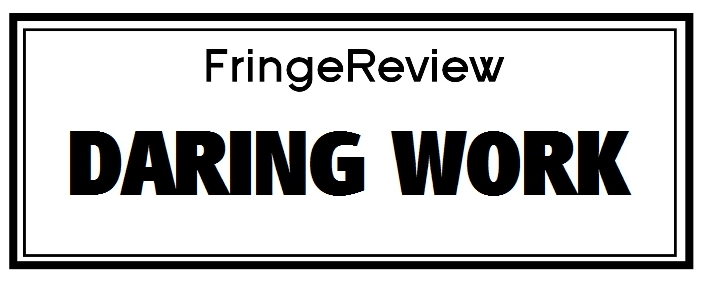
Review: In the Net
See In the Net for its ambition, its occasionally gorgeous language, Offie-worthy lighting and in Carlie Diamond, an actor to greet and watch, making I predict one of the most assured debuts of the coming year.

Review: Watch on the Rhine
Hellman’s uneasy drama, reaching out to our own quandaries, has answers that stay news. A must-see.

Review: Mother Goose
This is more than panto: it’s an affirmation of something that panto here welcomes in, in our time uniquely invoking layers as only Elizabethan/Jacobean drama can.

Review: An Inspector Calls
Still an outstanding production we might take for granted, Stephen Daldry has overhauled it, and crafted new touches of comedy and music-hall exaggeration.

Review: Jews. In Their Own Words.
It’s Jonathan Freedland’s and Tracy-Ann Oberman’s brilliance to bring off-kilter, casual devastation to the stage; in raw unsettlings that for many keep the suitcase packed.

Review: The Doctor
A triumph for all concerned. Juliet Stevenson even gains in stature. Robert Icke’s revival could hardly go better than this.

Review: Ian Lynam:Autistic Licence
Verbal and visual funny man from autism's front line (and with blue hair)

Review: About Money
A fantastic dramatic performance of a very difficult topic performed in an exceptionally authentic manner

Review: A Political Breakfast
An amusing hour in the company of three fixers giving us humorous solutions to the pressing issues of the day.

Review: All Of Us
As Ken Tynan once said of another debut, I don’t think I could love someone who doesn’t love this play.

Review: Julius Caesar
If you’re a habitual groundling, go before this production vanishes back on tour

Review: That Is Not Who I Am
Lucy Kirkwood prophesies what’s in store with savage fury, and no-one’s exempt, least of all her.

Review: Cancelling Socrates
Howard Brenton touching eighty is at the height of his powers. Tom Littler has assembled a pitch-perfect cast, reuniting two from his outstanding All’s Well. This too.

Review: The Father and the Assassin
There’s no finer dramatisation of India’s internal conflicts. Shubham Saraf’s Gandhi-killer Godse stands out in this thrilling ensemble and storms it too.

Review: Straight Line Crazy
Danny Webb gives the performance of his life. Ralph Fiennes is coiled majesty. Two-and-a-half hours of such material have rarely been so thrilling.

Review: Cocky and the Tardigrades
Bonkers brilliance. Cocky couldn’t have been premiered with two more stunning actors, and the author’s flawless stepping-in remains remarkable.

Review: Anne Boleyn
If it’s drama you’re after in Brighton Fringe, this is one of the two or three essential stops. Thrilling, authoritative, with Greene the jewel in a sparkling ensemble.

Review: Spirit of Woodstock 2 – The Sequel
There’s no greater writer/performer working in Brighton, or Sussex, and Spirit of Woodstock Parts I and 2 is Jonathan Brown’s most dazzling show to date.

Review: For Black Boys Who Have Considered Suicide When the Hue Gets Too Heavy
Turns the bleakness of six young men into a celebration of – for now – coming through

Review: Two Billion Beats
Two Billion Beats was bursting with promise before. Now it delivers with a visceral yes.

Review: A Splinter of Ice
Absorbing. With such an acting masterclass the play’s a bewitchingly-voiced fugue on the limits of belief and betrayal.



























